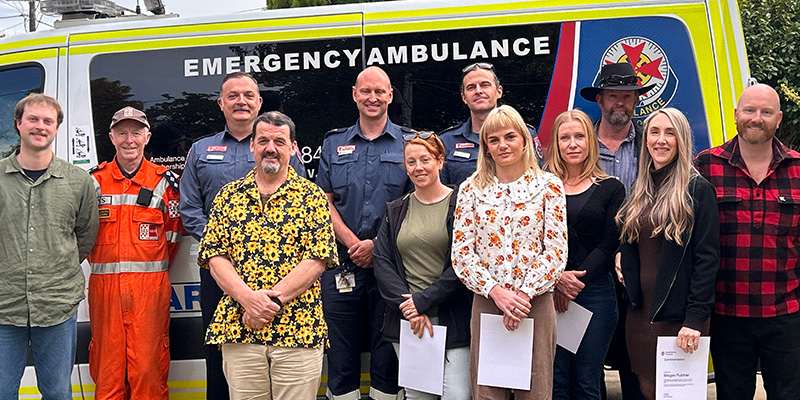The Law Council of Australia encourages Australians to ensure they are fully informed about the proposed constitutionally enshrined Voice and its implications before the 14 October Referendum.
“The legal profession is uniquely qualified to assist the Australian community to understand this issue,” Law Council of Australia President, Mr Luke Murphy said. “We have a responsibility, as a profession, to help people fully understand what is being proposed.”
Last week, the Law Council held a webinar which brought together distinguished legal experts to discuss the proposal to be put to Australians next month and answer questions raised by their colleagues.
“Our panel consisted of Professor Megan Davis, the Hon Kenneth Hayne AC KC, Professor Cheryl Saunders AO and Mr Greg McIntyre SC. These speakers are some of the most esteemed legal minds in this country, particularly in Constitutional law.
“The panel was unanimous in their view that the referendum proposal is simple, straightforward, safe and modest. Its strength is its simplicity.
“It reflects how Constitutional amendment should occur and has in the past, in that it asks the public to vote on a principle and leaves it to Parliament to implement the detail. During the webinar, Professor Saunders explained that what goes into the Constitution is what we want to protect. Things we don’t need to protect, that we are happy to see change over time, can and should be left out. This is vitally important as the legislation, the regulations, the rules underpinning the Voice must be flexible and subject to future change with public support and consultation.
“What we as a nation are being asked to decide is whether we agree that our Constitution should recognise Aboriginal and Torres Strait Islander Peoples as the First Peoples of Australia and give them a say in matters that impact them.
“The Law Council strongly encourages all Australians to read and consider the wording of the proposal closely; seek out information from a trusted source, such as the factsheets prepared by the Law Council; and even watch the webinar which is now publicly available on our website.
“A question that came up during the webinar, and has throughout debate in the lead up to the referendum, is how much power will the Voice have? As the wording of the proposed constitutional amendment makes very clear, the Voice will only be able to make representations to Parliament and the Executive, just as bodies such as the Law Council do on a regular basis.
“It will not have capacity to demand changes or to veto Government decisions. As a result, the panel said confidently that establishment of the Voice will not result in excessive litigation which will impact the functioning of Government.
“As Professor Davis shared during the webinar, many lawyers have spent over a decade testing the suggested amendments for their legal and technical risk and to ensure they are legally sound.
“As a national peak body, part of the Law Council’s work is to analyse and provide advice on matters before Parliament and the Australian Government, particularly as these relate to proposed law reforms and the administration of justice. We are well placed to observe a legal policy landscape in which Aboriginal and Torres Strait Islander peoples are disproportionately and detrimentally impacted by the powers of the Parliament and Executive Government – a landscape in which Aboriginal and Torres Strait Islander peoples commonly have the information and solutions about what will work most effectively for their communities. However, they need a voice equal to their aspirations, knowledge and lived experience.
“The Law Council has long considered a constitutionally enshrined Voice as critical to addressing the social and political disempowerment of Aboriginal and Torres Strait Islander peoples. It has called consistently for a referendum, to accept the powerful invitation issued in the Uluru Statement for all Australians to move together towards a better future.
“The Law Council has considered the proposed constitutional amendment, the referendum question, and the referendum process more generally over the past year or so. The Law Council’s view is that the constitutional amendment as proposed is constitutionally orthodox, just, and legally sound.
“As the Hon Kenneth Hayne put it in the webinar: ‘By recognising our First Peoples in our Constitution in this way, we lose nothing, but we gain so much for the whole nation'”.
The webinar is now available here.








